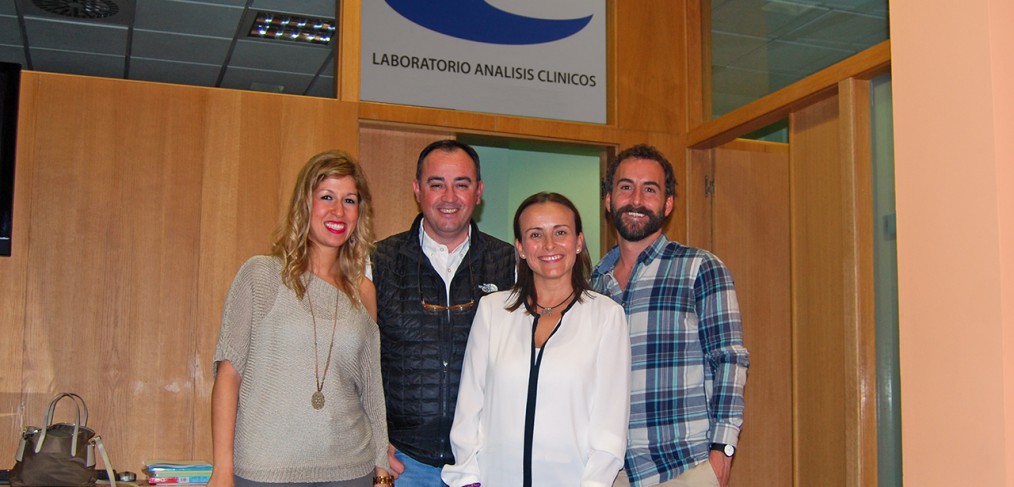
HAMBRE EMOCIONAL Y AMOR. Comer en compañía: una forma de hacer dieta: de la soledad insoportable al placer de la complicidadLet’s break taboos: EMOTIONAL HUNGER AND LOVE. Eating in company: A way of dieting: (From the unbearable solitude to the pleasure of complicity) What is love? To love is also eating with the person we love, helping her lead the diet and letting her know that, together, we will overcome any problems the loved one has … including boredom. (J.A.Abascal) There are many ways to proscribe people from a social environment. There are many causes that can justify or make these proscriptions justifiable. Among the most absurd is to make suffer the prohibition of sharing the social act, kind , and awaited by all, of eating together with the people who are loved to that member of the family who has voluntarily decided to carry a food diet . No by suffer an organic disease; only by to be “in fashion” with the rules that the … Society? , prescribes as goals for all its members. Have we ever stopped to think if that goal is logical ? We have valued the transcendence of the diet no the importance od the loveling person who is dieting. We forced her to her eat alone, boring and even denying her the right to help her a endure this sacrifice knowing that we value her effort, accompany her and celebrate each one of her Small daily successes? DO NOT. The answer is simple: We DO NOT. Have we heard of emotional hunger?. The “emotional hunger” appears when we have already eaten and is directly linked to our emotional status. “Emotional hunger” is the major cause of the failure of diets and not losing weight- And yet emotional hunger, eating by boredom, finding satisfaction in eating what we do not owe, is the prime cause of dietary failures. To take 20 minutes of our time to share it with her, is the best dietary supplement, for her and for us. If we really want the person who is feeling that deep down there is no reason to carry a diet, if no one thanks you for the effort and feel that you are left alone and bored, proscribed in your own family and social environment? Will we find better, more cheerful and happy seeing that we help to be happy to whom we want? It is a fact: if we love that person this should not be any effort. However we have to accept that our time and our help will have to be very personal (like loving, loving …) and how to show our affection will depend on each person because “there is no effective, equal method for all”. It’s very personal, (both distracting and getting bored) Do not think if ustad has done it, just think that if you want, you can do it.
Amar incluye muchas cosas. Amar también es comer con la persona que amamos, ayudarla a llevar la dieta y hacerle saber que, juntos, superaremos cualquier problema que el ser querido tenga… incluyendo el aburrimiento.
Hay muchas maneras de proscribir a las personas de un ambiente social. Hay muchas causas que pueden justificar o hacer justificables estas proscripciones. Entre los más absurdos es hacer sufrir la prohibición de compartir el acto social, amable y esperado por todos, de comer junto con las personas amadas (comer en familia) a ese miembro que voluntariamente ha decidido llevar una dieta alimentaria. No por sufrir una enfermedad orgánica; solo por seguir las reglas que la… ¿Sociedad? prescribe como objetivo único para todos sus miembros.
¿Alguna vez nos hemos parado a pensar si ese objetivo es lógico?
Hemos valorado la trascendencia de la dieta, no la importancia de la persona encantadora que está haciendo dieta. La obligamos a comer sola, aburrida e incluso negándole el derecho a ayudarla a soportar este sacrificio haciéndole saber que valoramos su esfuerzo, que la acompañamos y que celebramos cada uno de sus pequeños éxitos diarios.
¿LO HACEMOS? La respuesta es simple: NO LO HACEMOS.
¿Hemos oído hablar de hambre emocional?
El “hambre emocional” aparece cuando ya hemos comido y está directamente relacionado con nuestro estado emocional. El “hambre emocional” es la principal causa del fracaso de las dietas y no perder peso. El hambre emocional, el comer por aburrimiento, el encontrar satisfacción en comer lo que no debemos, es la causa principal de los fracasos dietéticos.
Hay dos preguntas para ayudar a vencer el hambre emocional de la persona que queremos:
- La primera: ¿De verdad queremos que la persona que está sintiendo que en el fondo no hay razón para llevar una dieta, si nadie le agradece el esfuerzo que hace ni le ayuda a vencer no ya la la sensación sino la realidad de que están solos y aburridos, proscritos en su propio entorno familiar y social siga así de sola, aburrida y mal?
- La segunda ¿Nos encontraremos mejor, más alegres y felices viendo que ayudamos a ser feliz a quien queremos?
- Es un hecho: si amamos a esa persona esto no debería ser ningún esfuerzo. La segunda es la respuesta correcta a las preguntas formuladas.
Reservar 20 minutos (o más) de nuestro tiempo, para compartirlo con la persona que está a dieta, es el mejor suplemento dietético para ella y para nosotros. No nos negará que es un tratamiento que solo requiere voluntad de compartir y que, en dinero, es muy, muy, muy barato.
Nosotros, aparte de nuestro tiempo tenemos que aceptar que nuestra ayuda tendrá que ser muy personal (como es el amar). Cómo mostrar nuestro afecto dependerá de cada persona porque “No existe un método efectivo e igual para todos… Salvo saber compartir”. Todo en las relaciones humanas acaba siendo muy personal, (tanto distraer como aburrirse).
No piense si usted ya lo ha hecho. Piense que si usted quiere, usted puede hacerlo.
What is love? To love is also eating with the person we love, helping her lead the diet and letting her know that, together, we will overcome any problems the loved one has … including boredom. (J.A.Abascal)
There are many ways to proscribe people from a social environment. There are many causes that can justify or make these proscriptions justifiable. Among the most absurd is to make suffer the prohibition of sharing the social act, kind , and awaited by all, of eating together with the people who are loved to that member of the family who has voluntarily decided to carry a food diet . No by suffer an organic disease; only by to be “in fashion” with the rules that the … Society? , prescribes as goals for all its members.
Have we ever stopped to think if that goal is logical ?
We have valued the transcendence of the diet no the importance od the loveling person who is dieting. We forced her to her eat alone, boring and even denying her the right to help her a endure this sacrifice knowing that we value her effort, accompany her and celebrate each one of her Small daily successes?
DO NOT. The answer is simple: We DO NOT.
Have we heard of emotional hunger?.
The “emotional hunger” appears when we have already eaten and is directly linked to our emotional status. “Emotional hunger” is the major cause of the failure of diets and not losing weight-
And yet emotional hunger, eating by boredom, finding satisfaction in eating what we do not owe, is the prime cause of dietary failures.
To take 20 minutes of our time to share it with her, is the best dietary supplement, for her and for us. If we really want the person who is feeling that deep down there is no reason to carry a diet, if no one thanks you for the effort and feel that you are left alone and bored, proscribed in your own family and social environment? Will we find better, more cheerful and happy seeing that we help to be happy to whom we want?
It is a fact: if we love that person this should not be any effort.
However we have to accept that our time and our help will have to be very personal (like loving, loving …) and how to show our affection will depend on each person because “there is no effective, equal method for all”. It’s very personal, (both distracting and getting bored)
Do not think if ustad has done it, just think that if you want, you can do it.
